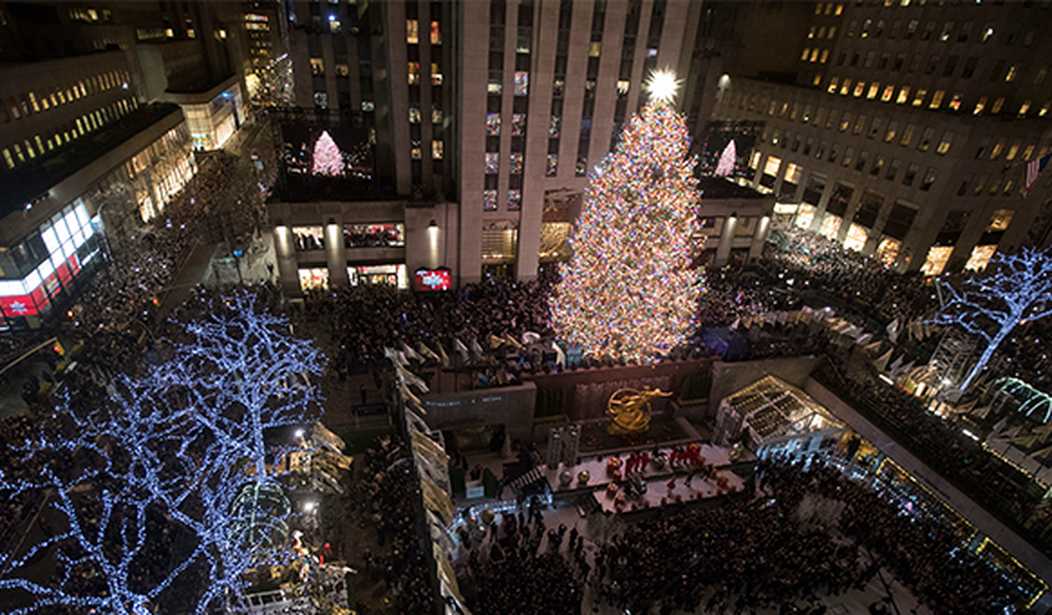Christmas is a glorious time of year for most families. It is a time of visits and reconnecting with relatives from afar. We all take time to rest, to relax in the joy of the season and the comforts of home. Seeking refuge from the winter chill, we converge around our collective hearth and enjoy the warmth of the yule log, the scents of festive candles, a mug of hot chocolate and the familiar songs and traditions we hold so dear.
But sometimes, those who've recently lost a loved one find themselves out in the cold. And they are often left to wonder why, in this holiest of seasons, they cannot seem to enjoy the holiday cheer. Whether for a close relative, a beloved mother or father, a spouse or a dear friend, the feeling of emptiness is similarly experienced. Why does nature give her bounty in such abundance at times -- with gifts, with nourishment, shelter and warmth -- and then, at other times, seem to take it away from us with such cold precision? What does it really mean to have faith in Christ and, at the same time, bear the torment of someone so close being torn away from us?
For those of us who are Christians, the birth of Christ signaled not only the coming of God in earthly form, but the forgiveness of an original sin that had stained mankind since the time of Adam. Death, we are taught, is the price of sin, for which Adam and his progeny were doomed to pay for his and Eve's disobeying the instruction of God not to partake of the tree of knowledge. Christ was born, in essence, to die in an act of atonement for man's sin. We come to understand death as the natural fate of things born. Eternal life in Heaven is the ultimate reflection of God's grace to man.
Wise prophets at the time viewed the birth of Christ at Christmas as a fortunate augury of God's grace. He caused Christ to be born of his spiritual seed, whispered into the heart of Mary. And yet, because he loved us so, he was willing to suffer the evils of betrayal and die on the cross before his ultimate resurrection.
Recommended
We will all eventually be called back to our creator to atone for our own sins, and be judged on the day of judgment. Death is merely the final accounting for the balance of our life's works.
Even though we know that in Christ life is eternal, we cannot help feeling pain, grief or loss. In reflecting on those we have lost, we realize that what made the holidays truly great was not the gifts or the festive parties, but the connection we have with our family and friends. It brings us back to the quintessential message of Christ: that God so loved man that he sent his only begotten son to minister to humanity. It is this essential love for humanity that reminds us, even in the midst of our pain, that there are other people still here on Earth who need our love, too -- our surviving family members, friends or even strangers. We can still celebrate our lost loved ones by honoring the living.
Honoring our dearly departed does not have to be a lonely and painful experience, though. We can take time to reflect in prayer about what our life means and what a blessing we have to still experience it. We can take time to volunteer in a ministry for the poor, to serve food or to donate to a worthy cause. In doing so, we are expanding our concept of family to embrace Christ's vision of humanity. We are gaining loved ones even as we mourn the loss of others.
Christmas and the holidays are a time to celebrate the fleeting gift of life and to rejoice in its bounty. For all of us are here but a short time before the darkness sets upon us and we are called back to God. We are reminded of these words from Ecclesiastes: "Indeed, if a man should live many years, let him rejoice in them all, and let him remember the days of darkness, for they will be many. Everything that is to come will be futility."
Even as we must rejoice, the scripture says we must also remember. The Good Book reminds to us to remember our loved ones and to rejoice in their lives. To remember the days of darkness even as we celebrate the birth of the savior. We honor God when we accept that with birth, ultimately, comes death. They are two sides of the same coin -- the sacred blessing of our existence here on Earth.

























Join the conversation as a VIP Member